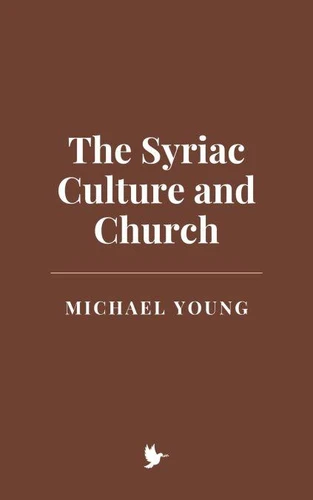The Syriac Culture and Church
Par :Formats :
Disponible dans votre compte client Decitre ou Furet du Nord dès validation de votre commande. Le format ePub est :
- Compatible avec une lecture sur My Vivlio (smartphone, tablette, ordinateur)
- Compatible avec une lecture sur liseuses Vivlio
- Pour les liseuses autres que Vivlio, vous devez utiliser le logiciel Adobe Digital Edition. Non compatible avec la lecture sur les liseuses Kindle, Remarkable et Sony
 , qui est-ce ?
, qui est-ce ?Notre partenaire de plateforme de lecture numérique où vous retrouverez l'ensemble de vos ebooks gratuitement
Pour en savoir plus sur nos ebooks, consultez notre aide en ligne ici
- FormatePub
- ISBN8230521853
- EAN9798230521853
- Date de parution16/01/2025
- Protection num.pas de protection
- Infos supplémentairesepub
- ÉditeurIndependently Published
Résumé
The Syriac civilization represents one of the richest and most complex cultural and religious tapestries in the ancient and medieval worlds. Rooted in the broader Semitic traditions, it flourished at the crossroads of empires, between the Mediterranean, Mesopotamia, and Persia. The Syriac-speaking world emerged as a distinct cultural entity primarily from the Aramaic heritage, particularly in the region of Edessa (modern-day Urfa in Turkey), which became the cradle of Syriac Christian identity.
The importance of this city, known in ancient sources as Osrhoene, cannot be overstated; it became a beacon for intellectual and spiritual movements that shaped not only the Syriac tradition but also the broader Christian world.
The importance of this city, known in ancient sources as Osrhoene, cannot be overstated; it became a beacon for intellectual and spiritual movements that shaped not only the Syriac tradition but also the broader Christian world.
The Syriac civilization represents one of the richest and most complex cultural and religious tapestries in the ancient and medieval worlds. Rooted in the broader Semitic traditions, it flourished at the crossroads of empires, between the Mediterranean, Mesopotamia, and Persia. The Syriac-speaking world emerged as a distinct cultural entity primarily from the Aramaic heritage, particularly in the region of Edessa (modern-day Urfa in Turkey), which became the cradle of Syriac Christian identity.
The importance of this city, known in ancient sources as Osrhoene, cannot be overstated; it became a beacon for intellectual and spiritual movements that shaped not only the Syriac tradition but also the broader Christian world.
The importance of this city, known in ancient sources as Osrhoene, cannot be overstated; it became a beacon for intellectual and spiritual movements that shaped not only the Syriac tradition but also the broader Christian world.























